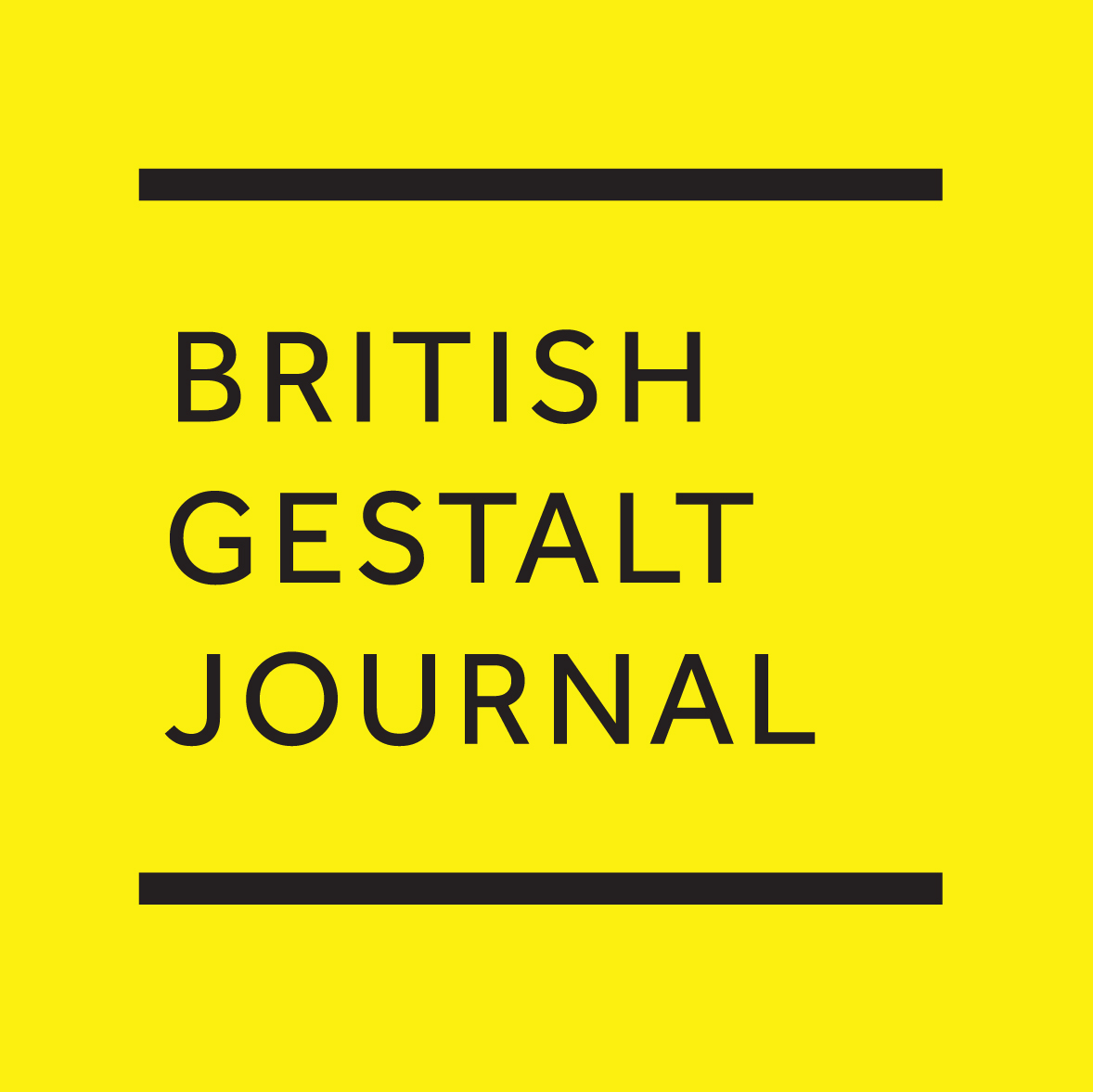Volume 27, 2 (2018)
Volume 27, 2 (2018)
Contents
Editorial -Christine Stevens
Obituaries
Ray Edwards (1925–2018) - Malcolm Parlett Guus Klaren
Articles
How wide is the field? Gestalt therapy in a capitalist world - Steffi Bednarek
Reorganisation in a traumatised relational field: the well-grounded therapist - Miriam Taylor and Vienna Duff
A Gestalt perspective on Energy Psychotherapy - Sandra Figgess Peter Philippson Lynne Jacobs
In their own voices
An interview with Robert W. Resnick and Rita F. Resnick - Malcolm Parlett
Letters to the Editor
Gestalt therapy needs a clear philosophy: a response to the development of a ‘Fidelity Scale’ for Gestalt therapy - Jim Robinson
Responding to the voice of the field: a letter from the UKAGP Conference, Birmingham, June 2018 - Lynne Brighouse
Reviews
Theory in relationship. A review of Relational Organisational Gestalt: an emergent approach to organisational development by Marie-Anne Chidiac - Chantelle Wyley
Gestalt therapy recontextualised. A review of The Now-for-Next in Psychotherapy: Gestalt Therapy Recounted in Post-Modern Society by Margherita Spagnuolo Lobb - Peter Cole
Opinion
Reflections on radical respect - Di Hodgson
Notices
How wide is the field? Gestalt therapy, capitalism and the natural world - Steffi Bednarek
Abstract:A recent UN report has warned that we are heading for an unprecedented global crisis if we do not radically change our ways. Climate change is no longer a hypothetical argument but a reality that threatens the existence of human and other-than-human life on the planet. With that information in mind, can we afford to keep practising psychotherapy with a focus on the individual and their personal needs, or do we need to radically question the role of psychotherapy in its lack of relationship to the more-than-human world? This article investigates where aspects of Gestalt psychotherapy may be too closely aligned with the capitalist paradigm, that risks costing us the Earth. I argue that we need to widen our notion of what is part of the field. I reflect on our theory in relation to anthropocentrism, individuality, materiality, privatisation, growth, progress and the lack of a cosmological perspective. This is by no means an exhaustive overview but an attempt to open the conversation.
Keywords:capitalism, complex systems, ‘more-than-human world’, anthropocentrism, individuality, materialism, systemic change, mythology, cosmology.
Reorganisation in a traumatised relational field: the well-grounded therapist - Miriam Taylor and Vienna Duff
Abstract:Being in the natural world is widely understood as having a beneficial effect, and experience of place resonates deeply (Jordan and Hinds, 2016). This effect and the potential of nature as an integral element of therapists’ self-care warrant attention and exploration through a Gestalt lens. The authors’ curiosity about this relationship and its application to trauma work led them to experiment with direct and creative contact with the natural world. Here, we set out to do three things: to provide a theoretical context and rationale; to articulate the ways in which Gestalt thinking informs our approach; and to illustrate the transformative potential of this area of work. We make links between the literature and practices of ecopsychology/psychotherapy and Gestalt theory, principles and practice. We incorporate storytelling and conversation to illuminate embodied enquiry, intentionally situating the presence of our ‘selves’ as participant observers and co-authors. We draw reflexively on aspects of practice to illustrate the core thesis and the concept of ‘the well- grounded therapist’ noting that there are implications for therapists’ practices of self-care. Whilst placing a clear emphasis on trauma work in this article, the central argument is about the ethics and value of self-care as a dialogic relationship inclusive of nature, therapist and client, and is applicable to a wide range of therapeutic work and settings.
Keywords:contact, dialogue, embodiment, ethic, field, natural world, self-care, regeneration, senses, trauma.
A Gestalt perspective on Energy Psychotherapy - Sandra Figgess
Abstract:In this paper I introduce ideas and practices from Energy Psychology and reflect on how my practice as an Energy Psychotherapist is supported by my Gestalt roots.
Keywords:chakra, Energy Psychology, Energy Psychotherapy, energetic field, energetic release, intention, meridians, muscle testing, obstacles to change, subtle energy, trauma.

